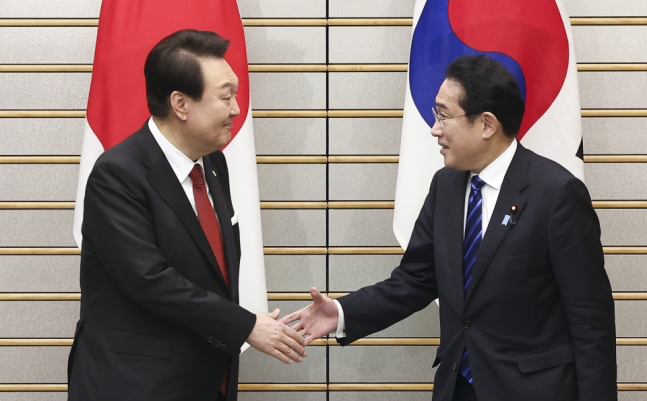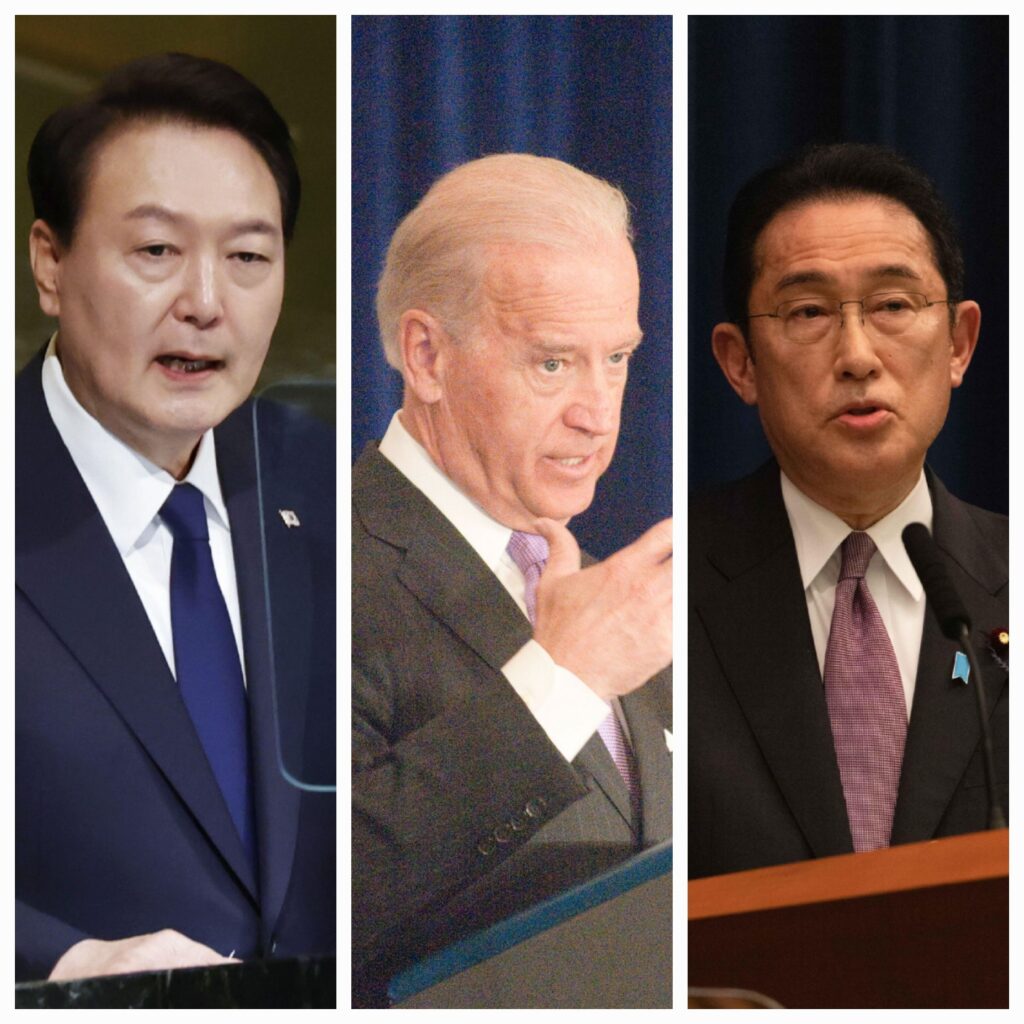Japanese Prime Minister Fumio Kishida reportedly asked President Yoon Suk Yeol to implement the Japanese military’s Japanese Military Sexual Slavery agreement and remove import regulations on Fukushima seafood at the Korea-Japan summit. According to the Sankei Shimbun on the 20th, Prime Minister Kishida demanded the implementation of the Japanese Military Sexual Slavery agreement at a meeting with President Yoon at the Prime Minister’s residence in Tokyo on the 16th. Prime Minister Kishida, who was the foreign minister at the time of the Korea-Japan Japanese Military Sexual Slavery agreement in December 2015, has been insisting on implementing the Japanese Military Sexual Slavery agreement.Kishida also called for the removal of restrictions on imports of fisheries products from Fukushima. It called for the lifting of vigilance against contaminated marine products after the nuclear accident at Fukumisam.

Since the Fukushima nuclear accident in 2011, South Korea has banned imports of all marine products from eight prefectures, including Fukushima, and 27 agricultural products from 14 prefectures, including rice and mushrooms.However, Sankei said, “There has been no progress on these issues.”Earlier, Japanese media, including Kyodo News, reported that Prime Minister Kishida requested the steady implementation of the 2015 Korea-Japan Japanese Military Sexual Slavery agreement.
On the 19th, an official from the South Korean president’s office replied that the Dokdo and comfort women issues have never been discussed at the talks.Regarding the issue of contaminated water at the Fukushima nuclear power plant, he said, “It is not appropriate to disclose what discussions have been made, but there are government principles,” adding, “There are scientific and national emotional aspects.” “If it is not confirmed that it is scientifically safe, how can we accept it when there are still factors that threaten health safety?” he added.
Meanwhile, Sankei reported that Prime Minister Kishida also pointed out the “radar-cursor” issue that occurred in 2018 as a pending issue between the two countries. In response, President Yoon said, “This problem was caused by a problem with each other’s trust relationship. “If we have a trust relationship in the future, we can harmonize each other’s arguments,” Sankei said.

The radar-censorship conflict was triggered on Dec. 20, 2018, when Japan claimed that the South Korean Navy’s Gwanggaeto the Great, who was searching for a North Korean fishing boat in the East Sea, inspected a fire control radar toward the Japanese Maritime Self-Defense Force P1 patrol plane that flew near the ship.At that time, Japan released a video filmed inside the patrol plane, saying it was evidence of that, and South Korea countered that there was no radar investigation, but rather that the patrol plane flew low-flying threat near the Gwanggaeto the Great.Will the summit, which was held after the first two administrations, help revive the nation’s interests and the sluggish economy? The two countries are issuing statements of different positions to see if they have reached consultations on these issues at a time when the territorial dispute, semiconductors, and Japanese Military Sexual Slavery are still at odds.
Chang-young CHOI
US ASIA JOURNAL

